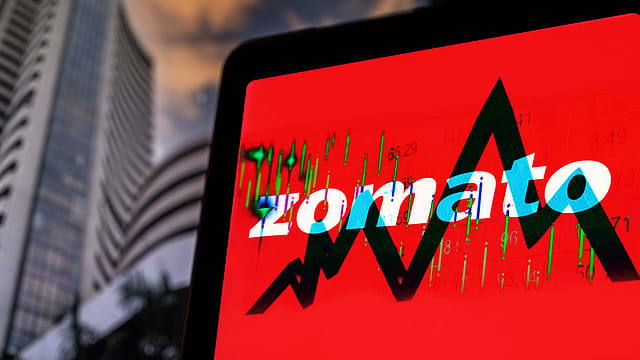Aswath Damodaran values Zomato at ₹35 per share
ADVERTISEMENT

New York University's finance professor Aswath Damodaran, who valued Zomato at ₹41 per share ahead of the food delivery company's IPO last year, has revised his valuation of the stock to ₹35.
"The last few months have been rocky, as the price has been marked down, partly in response to disappointing results from the company, and partly because of macro developments," says the Stern School of Business professor in a blog post.
While there was a management narrative of economies of scale and improved contribution margins, the end numbers don't back up either contention, with cost of goods sold rising much faster than revenues and operating and net margins both becoming more negative over the last year, says Damodaran.
The slice of gross order value (GOV) that Zomato keeps has dropped substantially over the last year, reflecting increased competition in the market, higher delivery costs and Zomato's entry into newer markets (like grocery delivery) with lower revenue sharing, argues the NYU professor.
"In addition, the growth has come in fits and starts, and given Zomato's active acquisition strategy, it is not clear how much of the revenue growth is organic and how much is acquired. Not surprisingly, the company's losses have ballooned over the last year," he adds.
Damodaran further says that Zomato's ₹4,447 crore acquisition of quick commerce startup Blinkit raises questions about whether this growth is coming at a reasonable cost. "The potential conflicts of interest in this acquisition, with a Zomato co-founder's spouse operating as the CEO of Blinkit, also add to the questions. Even if the Blinkit acquisition pans out, it is an open question whether Zomato can continue to deliver growth effectively and efficiently through this acquisition-driven strategy, using its own shares as currency, especially as it scales up," he adds.
The Blinkit acquisition suggests that Zomato is planning a substantial foray into the grocery delivery business, albeit at the expense of a smaller slice of revenues and a smaller market share, says Damodaran.
Among the macro factors going against the food ordering platform, the NYU professor argues that less-risky companies with pricing power and high gross margins would be less exposed than riskier, money-losing companies at a time when inflation is rising across the globe.
"A higher equity risk premium for India (9.08% in July 2022, compared to 6.85% in July 2021) and a higher risk-free rate in rupees (4.78% in July 2022, compared to 4.25% in July 2021) conspire to push up the cost of capital for Zomato (and other Indian companies) by about 1.5-2% from my IPO valuation," says Damodaran.
The value per share has dropped from ₹40.79 to ₹35.32 per share, with much of the value change from last year coming from macroeconomic developments, manifested in a higher cost of capital, says Damodaran. For this value to be generated, the company will need to stop paying lip service to contribution margins and adjusted EBITDA, and work on reducing growth in its cost of goods sold, he adds.
This comes days after foreign brokerage Jefferies retained its "buy" rating on the stock with a target price of ₹100. The stock of the food delivery firm made a stellar debut when it got listed on the bourses last year. Shares of Zomato listed at a 53% premium over the issue price of ₹76 on the National Stock Exchange. The food ordering app's share price had touched an all-time high of ₹169.10 on November 16, 2021.